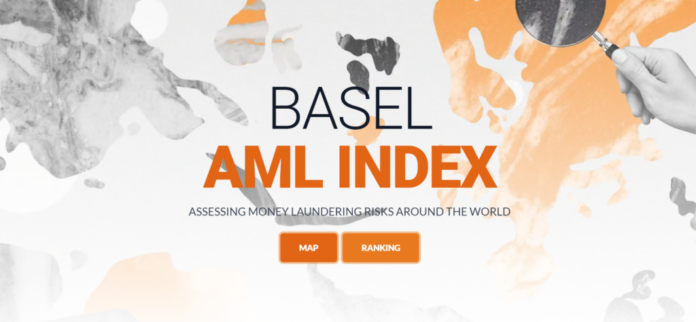ISLAMABAD: The Basel anti-money laundering (AML) Index, a leading independent ranking of money laundering and terrorist financing (ML/TF) risks around the world, has acknowledged the progress made by Pakistan by slightly lowering the risk score of the country.
“Pakistan’s overall money laundering and terrorist financing risk score in the earlier Basel AML Index was 6.16. This places it in the medium-risk category compared to other global jurisdictions. In the latest update of the expert edition, which is updated quarterly with the latest data, the risk score is slightly lower at 6.11,” said the Basel AML Index briefing on Pakistan.
Pakistan achieved the following scores in the latest FATF assessments: 3% for effectiveness and 72% for technical compliance Based on the Basel AML Index methodology and calculations; Pakistan’s score on the FATF indicator alone is 7.38 – a high risk compared to the global average.
Pakistan was first added on the Financial Action Task Force’s (FATF) grey list from 2012–2015. It was included on the grey list again in June 2018 as its deficiencies in some technical areas were considered a serious threat to the global financial system. These deficiencies covered many areas: legal, financial, regulatory, investigations, prosecutions, judicial and the non-governmental sector.
The decision to add Pakistan to the grey list was taken before the results of its Mutual Evaluation Report (MER) were published. The MER was published in October 2019 and revealed poor performance in both effectiveness (3%) and in technical compliance (39%).
During the last four years, Pakistan has had two Action Plans to address these deficiencies, comprising in total 34 points. 27 points were included in the 2018 Action Plan and 7 points were added in 2021. The Action Plans were sweeping and included requirements to improve almost all areas of money laundering and terrorist financing (ML/TF) compliance and effectiveness, including a specific focus on TF risks. Pakistan also had to maintain a database of terrorists and terror groups operating on its territory and the actions taken against them.
Actions taken and progress made
Since June 2018, the country has been working with the FATF and its affiliates to strengthen its legal and financial systems against ML/TF in order to meet international standards in line with the FATF’s 40 recommendations. Pakistan has amended more than 10 laws to ensure technical compliance with the FATF Recommendations.
From September 2020 to August 2022, the country went through four follow-up reports and improved its performance in technical compliance from 41% to 72%. Currently, Pakistan is evaluated as being “largely compliant” with most of the 40 Recommendations. Only in R15 (new technologies) and R38 (mutual legal assistance: freezing and confiscation) is Pakistan only “partially compliant”. There is no single recommendation left where the country is evaluated as “non-compliant”. Performance under the FATF’s effectiveness criteria (“immediate outcomes”) was not reassessed.
In late August 2022, an FATF delegation and the regional Asia/Pacific Group on money laundering conducted an on-site visit to verify Pakistan’s compliance with the 34-point Action Plan. 4 Following the visit, the FATF decided by consensus that Pakistan had completed all substantial, technical and procedural requirements of both the 2018 and 2021 Action Plans. As a result, Pakistan was taken off the grey list with immediate effect.
Being delisted from the grey list often results in further positive developments in economic and social areas. In general, it increases a country’s attractiveness to foreign investors. For Pakistan it can have positive consequences such as increased access to financial resources and assistance to deal with the consequences of recent floods in the country.
Exiting the grey list means Pakistan can now have more access to foreign aid and loans as well as more foreign direct investment, which has shown a downward trend recently. The Pakistani economy has been facing severe difficulties and is in dire need of that investment. On 21 October 2022, just ahead of the FATF announcement, the credit ratings agency Fitch Ratings cut the country’s sovereign rating to CCC+ from B-. This followed the downgrading by Moody’s – another credit ratings agency – of Pakistan’s ranking to negative.
Being on the FATF grey list also made it difficult for Pakistan to get assistance from the IMF, World Bank, Asian Development Bank and EU. For instance, the IMF had included exiting the grey list as part of its conditions for receiving a $6 billion bailout. In November 2022, Pakistan and the IMF began talks online regarding a $ 7 billion loan programme. Based on earlier reviews of the programme, the IMF had already approved $ 1.1 billion earlier in August 2022.
The Basel AML Index
The Basel AML Index is an independent country ranking and risk assessment tool for money laundering and terrorist financing (ML/TF), produced by the Basel AML Index since 2012.
The index is developed and maintained by the Basel Institute on Governance through its International Centre for Asset Recovery. The institute is an independent not-for-profit organisation dedicated to countering corruption and other financial crimes and to improving standards of governance. It is headquartered in Basel, Switzerland and maintains field operations in Africa, Eastern Europe, Latin America and Southeast Asia.
The index provides risk scores based on data from 18 publicly available sources such as the Financial Action Task Force (FATF), Transparency International, the World Bank and the World Economic Forum. The risk scores cover five domains considered to contribute to a high risk of ML/TF:
- Quality of AML/CFT Framework
- Bribery and Corruption
- Financial Transparency and Standards
- Public Transparency and Accountability
- Legal and Political Risks

























good post
The fact that Pakistan was placed on the FATF grey list makes it more challenging for the country to receive help from the IMF, World Bank, Asian Development Bank, and EU.